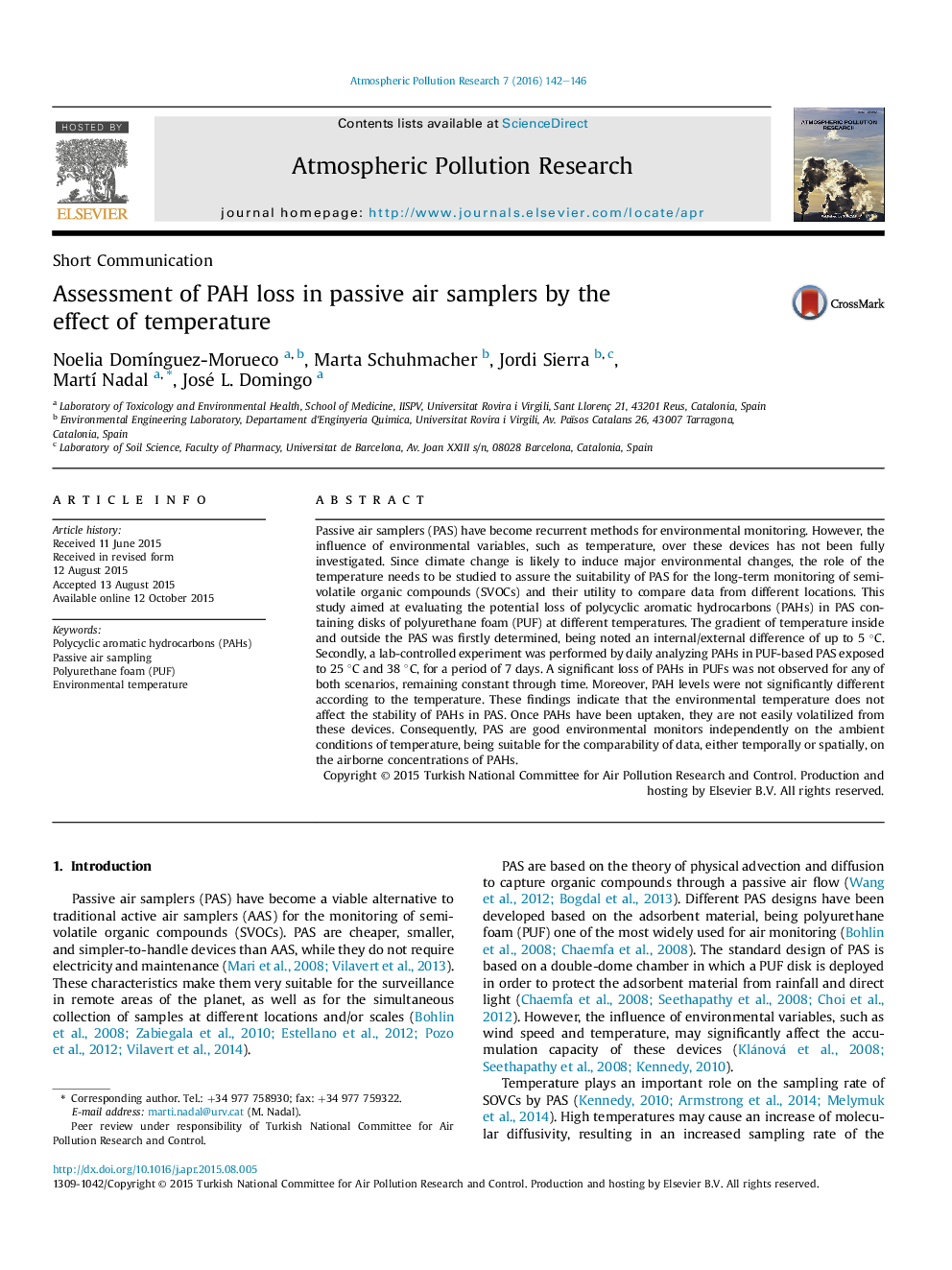| Article ID | Journal | Published Year | Pages | File Type |
|---|---|---|---|---|
| 4434715 | Atmospheric Pollution Research | 2016 | 5 Pages |
Passive air samplers (PAS) have become recurrent methods for environmental monitoring. However, the influence of environmental variables, such as temperature, over these devices has not been fully investigated. Since climate change is likely to induce major environmental changes, the role of the temperature needs to be studied to assure the suitability of PAS for the long-term monitoring of semi-volatile organic compounds (SVOCs) and their utility to compare data from different locations. This study aimed at evaluating the potential loss of polycyclic aromatic hydrocarbons (PAHs) in PAS containing disks of polyurethane foam (PUF) at different temperatures. The gradient of temperature inside and outside the PAS was firstly determined, being noted an internal/external difference of up to 5 °C. Secondly, a lab-controlled experiment was performed by daily analyzing PAHs in PUF-based PAS exposed to 25 °C and 38 °C, for a period of 7 days. A significant loss of PAHs in PUFs was not observed for any of both scenarios, remaining constant through time. Moreover, PAH levels were not significantly different according to the temperature. These findings indicate that the environmental temperature does not affect the stability of PAHs in PAS. Once PAHs have been uptaken, they are not easily volatilized from these devices. Consequently, PAS are good environmental monitors independently on the ambient conditions of temperature, being suitable for the comparability of data, either temporally or spatially, on the airborne concentrations of PAHs.
